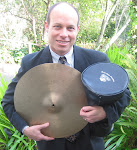David Owen's New Yorker article (December 20, 2010), The Efficiency Dilemma should be required reading (link here) for anyone interested in energy consumption. Owen analyzes Jevons' Paradox: the more the efficiency, the greater the consumption. Owens writes, "The problem with efficiency gains is that we inevitably reinvest them in additional consumption." Refrigerators, computers, dishwashers, driers, automobiles, and air conditioning units are all much more efficient than before. However, we use more of them and total energy use (and greenhouse emissions) has climbed.
Owen writes about his family's experience with home air conditioning, 60 years ago a rare luxury. Today air conditioning is found in most homes in the Midwest and South as well as in most office buildings and new cars. The costs are less than before so people don't hesitate to use air conditioning day and night.
Owen concludes that efficiency will not bring about lowered energy consumption. Like anything else, making energy more costly will create incentives to use less of it.
Owen writes about his family's experience with home air conditioning, 60 years ago a rare luxury. Today air conditioning is found in most homes in the Midwest and South as well as in most office buildings and new cars. The costs are less than before so people don't hesitate to use air conditioning day and night.
Owen concludes that efficiency will not bring about lowered energy consumption. Like anything else, making energy more costly will create incentives to use less of it.





No comments:
Post a Comment